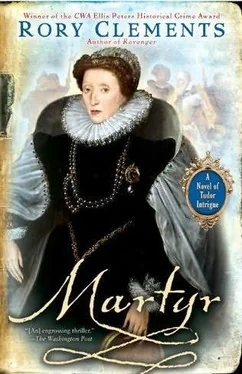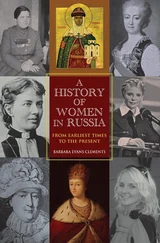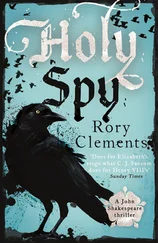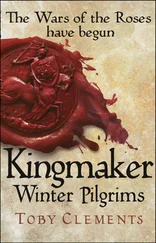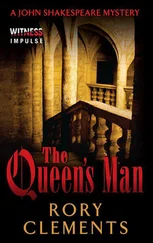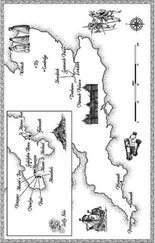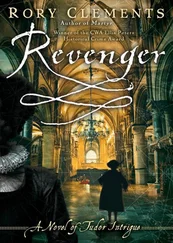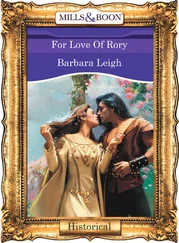Rory Clements - Martyr
Здесь есть возможность читать онлайн «Rory Clements - Martyr» весь текст электронной книги совершенно бесплатно (целиком полную версию без сокращений). В некоторых случаях можно слушать аудио, скачать через торрент в формате fb2 и присутствует краткое содержание. Жанр: Исторический детектив, на английском языке. Описание произведения, (предисловие) а так же отзывы посетителей доступны на портале библиотеки ЛибКат.
- Название:Martyr
- Автор:
- Жанр:
- Год:неизвестен
- ISBN:нет данных
- Рейтинг книги:3 / 5. Голосов: 1
-
Избранное:Добавить в избранное
- Отзывы:
-
Ваша оценка:
- 60
- 1
- 2
- 3
- 4
- 5
Martyr: краткое содержание, описание и аннотация
Предлагаем к чтению аннотацию, описание, краткое содержание или предисловие (зависит от того, что написал сам автор книги «Martyr»). Если вы не нашли необходимую информацию о книге — напишите в комментариях, мы постараемся отыскать её.
Martyr — читать онлайн бесплатно полную книгу (весь текст) целиком
Ниже представлен текст книги, разбитый по страницам. Система сохранения места последней прочитанной страницы, позволяет с удобством читать онлайн бесплатно книгу «Martyr», без необходимости каждый раз заново искать на чём Вы остановились. Поставьте закладку, и сможете в любой момент перейти на страницу, на которой закончили чтение.
Интервал:
Закладка:
“You are silent, sir?” the monk said. “Are you surprised, then, by this demon’s handiwork?”
“No. No, not surprised.”
“A goodwife from Rymesford tended my wounds and brought sustenance. She still helps me, as do others. Burghley and his like cannot kill our faith so easily, you know.”
Shakespeare reached out and touched the monk on the shoulder. Ptolomeus did not flinch. “We will leave you money,” Shakespeare said. “But you must tell us what happened to your printing press.”
“The money would be a kindness, sir. Thank you. As for the press, Mr. Richard Topcliffe took that, too. He said he had some use for it. I did hear him laugh as he carried it off on the back of my own cart.”
Chapter 43
John Shakespeare and Boltfoot Cooper rode in silence. They had passed by the great castle of Windsor and were close to London now. The villages that serviced the city with vegetables, livestock, timbers, and ironwork were becoming more numerous and prosperous. It seemed to Shakespeare that London was the center of a great wheel and that these roads in, with their increasing numbers of hamlets and towns, were its spokes. You could hardly turn a corner without spying another church spire against the skyline.
The fields were different, too, better cared for and enclosed than those he had encountered traveling west. They passed through part of Surrey and Shakespeare collected his gray mare that had gone lame on the way to Plymouth; she was hale and in good spirits and he paid the peasant who had cared for her half a crown for his efforts. It seemed fairer than the sixpence he had promised.
The silence between Shakespeare and Boltfoot reflected their thoughts. Each knew what the other was thinking. Shakespeare broke the spell. “It can mean but one thing, Boltfoot,” he said at last.
Boltfoot nodded.
“It can mean only that Topcliffe himself printed that tract in Hog Lane. But why would he do that?”
“Justification, Master Shakespeare. To show the Catholics as treacherous.”
“Would he go to such lengths?” But Shakespeare knew the answer: what lengths wouldn’t Topcliffe go to in his mission to destroy every Roman Catholic priest and adherent of the old faith? Surely, a man who could commission a rack and torture room for his own home would be capable of printing a tract to justify more arrests. “Yes,” Shakespeare agreed, “yes, he would go to such lengths. The tract was naught but a poor copy of ‘Leicester’s Commonwealth.’ It was without meaning and could have had only one purpose: it was a diversion.”
They rode on a little way in silence. Then Shakespeare turned once more to Boltfoot. “And that leads us on to another certainty…”
“He killed the Lady Blanche.”
Shakespeare flinched at the harshness of the words, then said them, more quietly, himself “Topcliffe killed Lady Blanche Howard.”
Boltfoot issued a low noise like a farmyard animal.
“But why did he kill her?” pressed Shakespeare. “Why pick on a Howard, with all the complications that could bring? She may have been a Catholic convert, but even Her Majesty would not brook the murder of her cousin in that way.”
“I think he killed her by mistake, sir. Then tried to cover his tracks. I think he tortured her for information, but she died. The relic and crucifix were added later, as were the cuts to her throat and belly.”
Shakespeare shook his head. “No. It wasn’t a mistake. He planned to kill her all along. He knew he could not allow her to live as soon as he subjected her to torture; if he had set her free the wrath of the Howards would have destroyed him. He planned to kill her and put the blame onto the Catholics by befouling her body with the crucifix and relic, to make it seem like some debauched Popish rite. That fits in with the Searcher of the Dead’s findings. He said she had been dead three days and that she was killed somewhere else. The wounds that were supposed to have killed her did not produce enough blood, he said.”
And the marks on her wrists, he thought. They could just as eaisly have been caused by manacles as a rope used to tie her. He had seen similar injuries on Thomas Woode after his sessions against Topcliffe’s wall. But what sort of information would Topcliffe be trying to prize from her? The answer was plain: he wanted the same information from Blanche that he was now intent on extracting from Woode-the whereabouts of Robert Southwell. He must have heard of some link between Blanche and the Jesuits; perhaps a servant in Howard of Effingham’s household had passed on information, or an informant within the Catholic network. Topcliffe was a man possessed when it came to finding the Jesuit priest. Topcliffe wanted Southwell, and he did not care whom he had to ruin or slaughter to get to the priest. Shakespeare spurred his horse. He had been away from Catherine too long.
Topcliffe, Young, Newall, and a force of their ten most hardened pursuivants came to Shakespeare’s house in Seething Lane in the darkness half an hour before dawn.
They tethered their horses a street away, then trod softly toward the ancient house so that none should awake and alert Walsingham. There was to be no alarm, no uproar. This was to be done with precision and silence. Mr. Secretary must awake at dawn or after and be none the wiser of what had happened at his close neighbor’s home.
The plan was to go in at lightning speed. Flatten the door with one blow from the battering tree, then advance without shouting or mayhem, each member of the force to take one room so that no occupants of the house should escape. Topcliffe looked around him. The street was empty. “Where, Dick, is your watchman? Who is guarding this house?” His voice was a gruff, urgent whisper.
Young looked around. “The idle fool must have gone home. I’ll have strong words with him for this.”
“God’s blood, Dick, you’ll flog him raw. Take his skin off. All right, let’s go in.”
Six men held the heavy tree trunk and swung back and forward once, then back again and brought it forward halfway up the door, close to the lock, crashing it down with one blow.
Topcliffe went in first, closely followed by Young. Then they stopped where they stood, mouths agape at the scene that confronted them.
The hallway was lit by torches and candles and the room was filled with men, twenty or so. Some stood, leaning on swords or holding bows. Others lay back against the walls. One or two puffed at pipes. All wore martial clothes, thick leather doublets like the pursuivants, and they all gazed on Topcliffe and Young with nonchalant disdain.
It was an eerie sight in the flickering light. It seemed that two platoons had suddenly come face to face, both armed and ready to fight, yet one of the armies-the one already there-could scarcely bother to stand up for the battle. Topcliffe at last found his voice. “Who are you?” he bellowed.
One of the men rose to his feet and sauntered forward until he was face to face with Topcliffe. He was a young man, perhaps early twenties, with a short, neatly trimmed beard and dark hair swept back about his ears. “No, sir, who are you? And what are you doing in my brother’s house?”
Topcliffe spluttered, “You are Shakespeare’s brother? What do you do here? I had not expected you!”
“My friends and I are lodging here, thanks to the kindness of my brother. We have been levied from Warwickshire to train with the London militias. We will soon be garrisoned at Tilbury for the defense of the realm, not that it is any of your business. And what, pray, is your business? It seems you are trespassing and have caused some criminal damage to my brother’s door. Are you housebreakers? If so, I shall see you hang for it. It would behoove you well to think on this: my brother is a senior officer with Sir Francis Walsingham.”
Читать дальшеИнтервал:
Закладка:
Похожие книги на «Martyr»
Представляем Вашему вниманию похожие книги на «Martyr» списком для выбора. Мы отобрали схожую по названию и смыслу литературу в надежде предоставить читателям больше вариантов отыскать новые, интересные, ещё непрочитанные произведения.
Обсуждение, отзывы о книге «Martyr» и просто собственные мнения читателей. Оставьте ваши комментарии, напишите, что Вы думаете о произведении, его смысле или главных героях. Укажите что конкретно понравилось, а что нет, и почему Вы так считаете.
